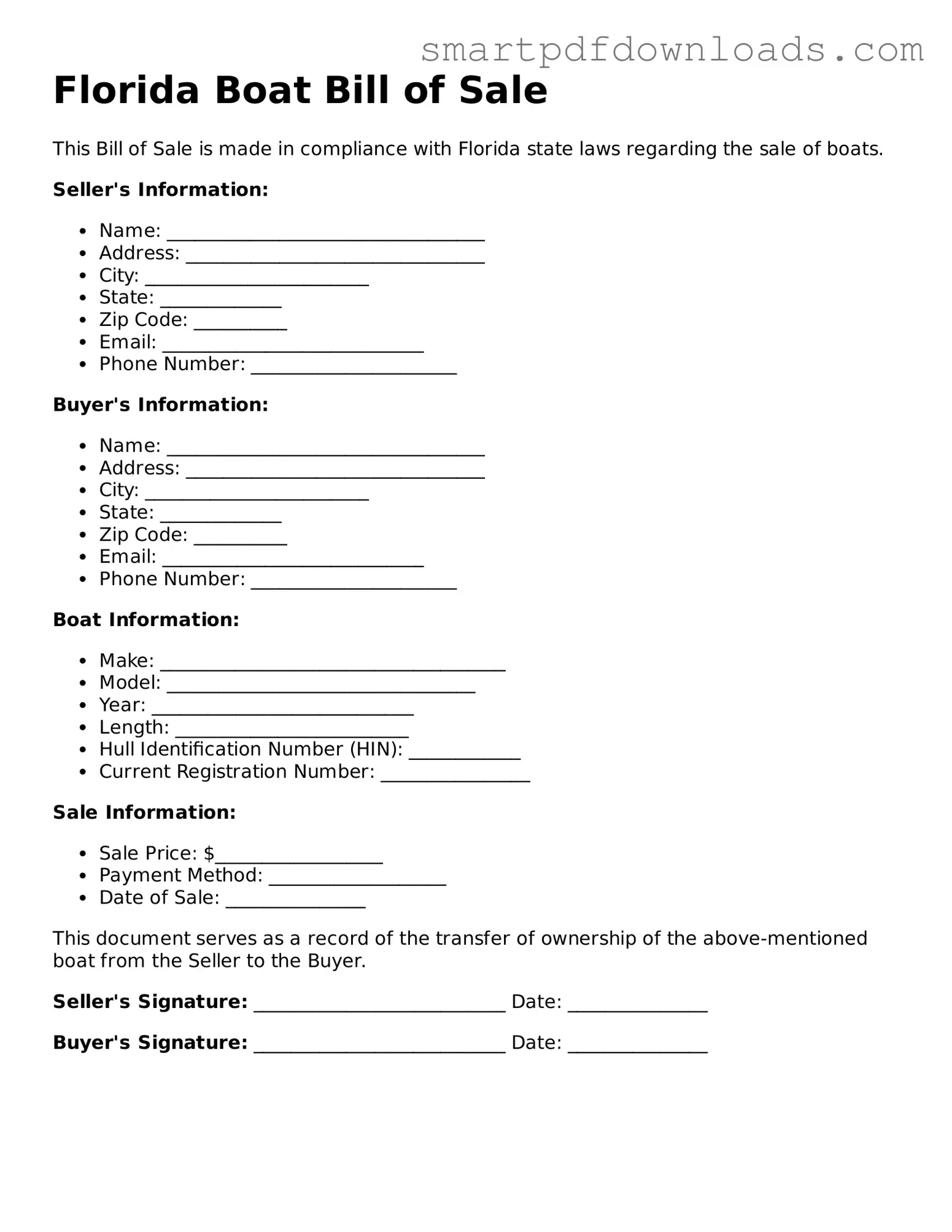Legal Boat Bill of Sale Form for the State of Florida
The Florida Boat Bill of Sale is a legal document that records the sale of a boat between a seller and a buyer. This form serves as proof of ownership transfer and includes important details about the boat and the transaction. Understanding its components can help ensure a smooth buying or selling process.
Edit Boat Bill of Sale Online

Legal Boat Bill of Sale Form for the State of Florida
Edit Boat Bill of Sale Online

Edit Boat Bill of Sale Online
or
⇓ PDF File
Finish the form and move on
Edit Boat Bill of Sale online fast, without printing.